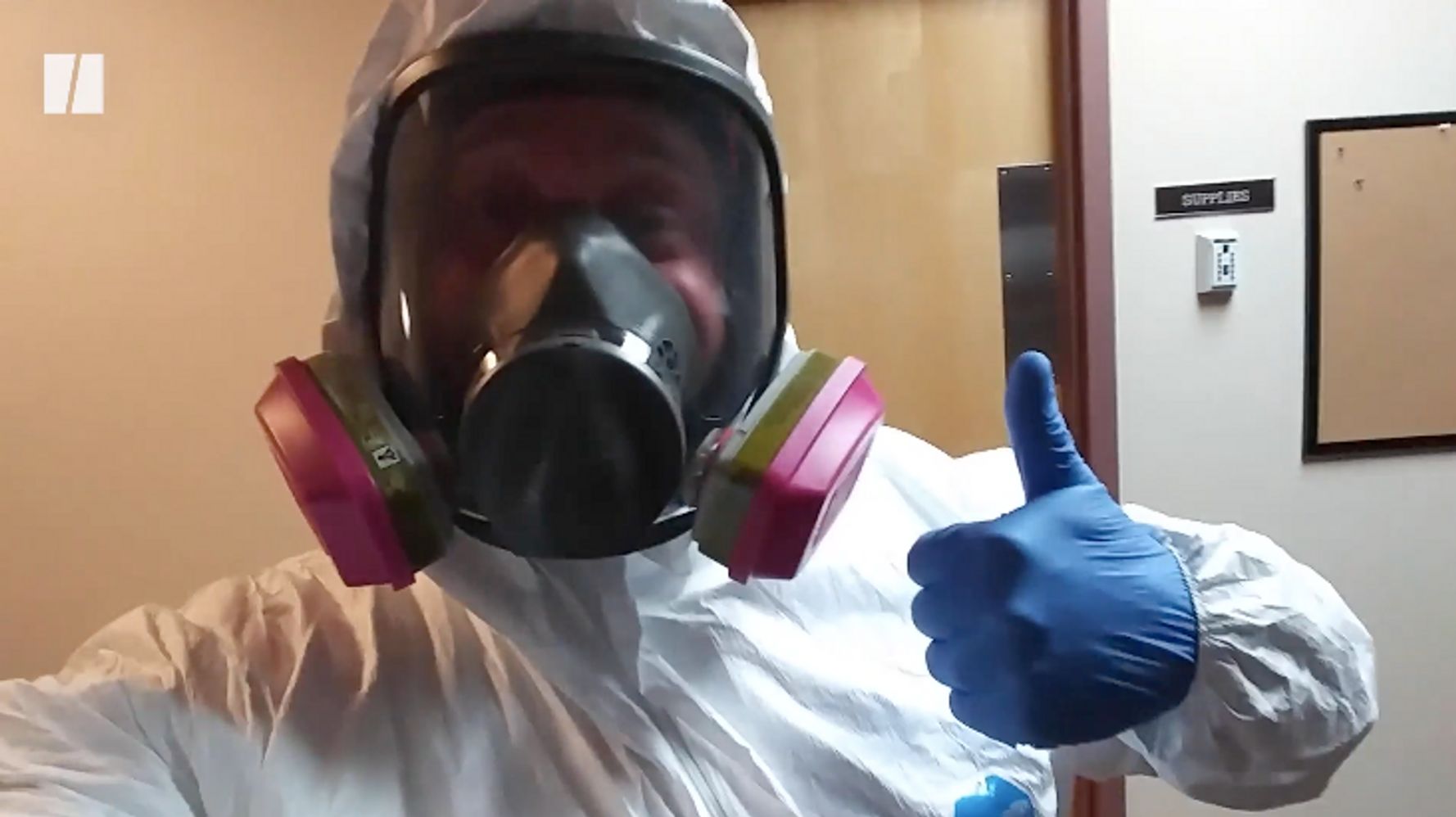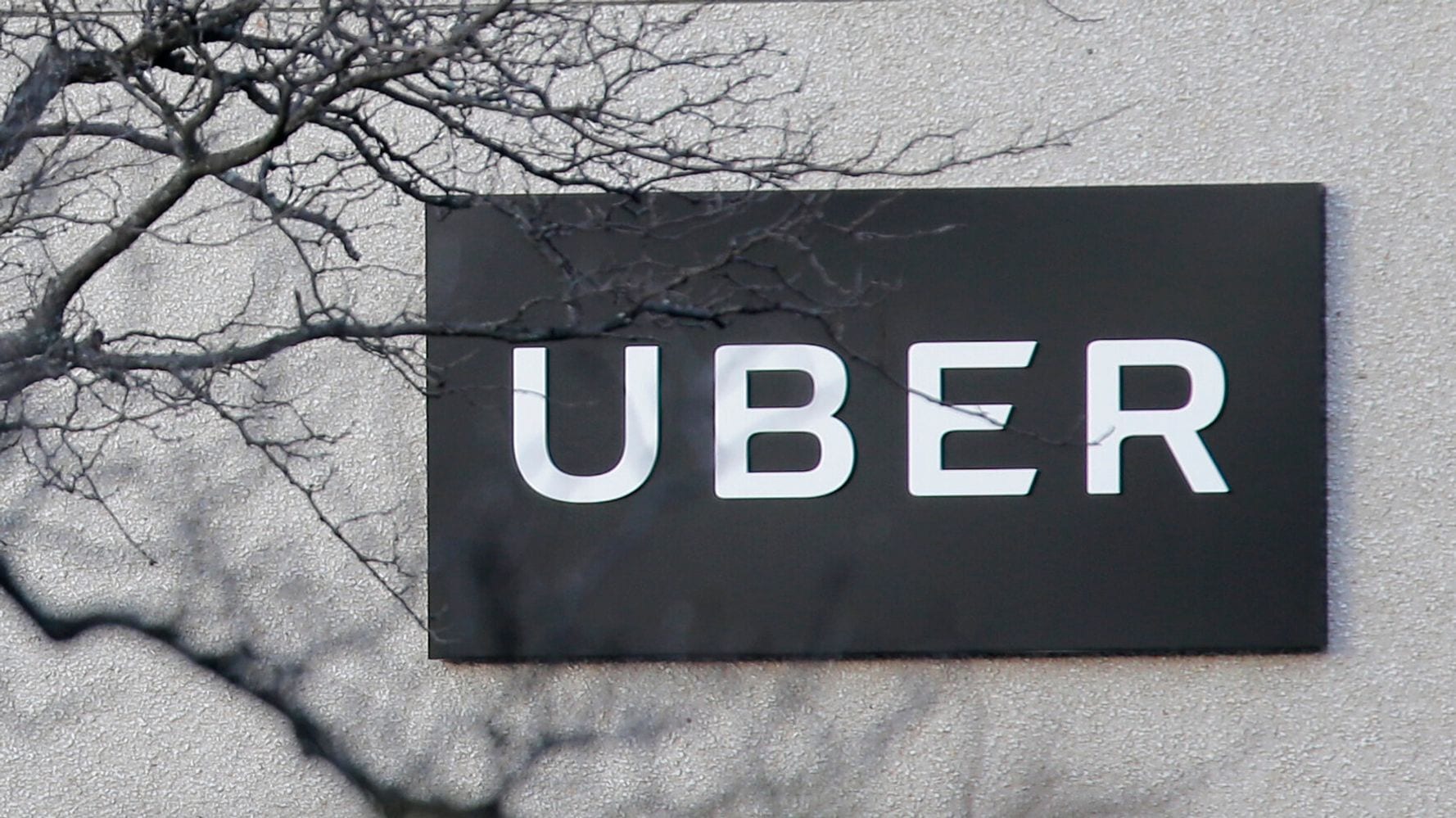[ad_1]
When Arizona paramedic Ryan Hilliard gets an alert about someone who needs medical attention, he snaps into action. That looks a little different these days as COVID-19 continues to sweep through the U.S. infecting thousands. Hilliard must make sure there is a partition between the ambulance driver’s seat and the passenger in back. He must suit up head-to-toe and put on gloves. And then there’s the gas mask.
“I think my patient was a little amused by [the mask]. because he said, ‘Are you guys scared?’” Hilliard told HuffPost earlier this month. “He asked that to me and my partner, and we can’t ― we’re not really supposed to let any of them feel like we are insecure. We’re supposed to be the strong ones all the time. So we’re like, ‘No, no, man, piece of cake.’ But honestly, I was a little nervous.”
This is the new normal for Hilliard ― who works in the Sierra Vista area ― and thousands of other EMS workers in rural areas across the country. Every patient must be treated as if they have coronavirus, and every medical response worker must treat each sickness as a worst-case scenario.

Christopher Alleman, the chief and operations manager for Arizona Ambulance, told HuffPost he has worked in EMS for over 23 years. He’s seen a lot, but nothing like this.
“This whole [COVID-19] thing is one of the scariest things that I have been through,” Alleman said.
Rural areas can make it especially difficult to get patients the treatment they need. Hilliard said it takes just six minutes to get to Canyon Vista Medical Center. But it’s a small hospital with limited ICU beds, so some patients might have to go to a Tucson hospital about an hour and a half away.
After a successful transport, Hilliard and his team must spend 30 minutes decontaminating themselves and the ambulance to ensure the virus doesn’t spread. Hilliard is proud of the work he’s doing, but that doesn’t mean he’s immune to the fear that comes with the job.
“I try not to show how scared I am to my family,” Hilliard confessed. “I’m on a 36-hour shift right now, and I haven’t been home since the other morning. It’s not fun to be away from home for this long.”
“Every moment is pretty important when I’m at home,” he added. “It’s like, this could be the last time I can see you for a long time. So I try to cherish those moments.”
Alleman said his team is also working with FEMA, which means he and paramedics like Hilliard could be deployed at any point to harder-hit areas like New York City. Alleman said those on the front lines of this pandemic are selfless.
“I think the selflessness that our guys have, you know, you don’t make a lot of money in this industry, you’re in it for people,” Alleman said. “I know it sounds really corny, but you’re in it for humanity. It’s times like this that I’m super proud of my guys. They have families at home. They have little kids at home, and have the same fears that I do and still show up to work.”
Video produced by HuffPost Senior Producer Jessica Blank.
Calling all HuffPost superfans!
Sign up for membership to become a founding member and help shape HuffPost’s next chapter

















